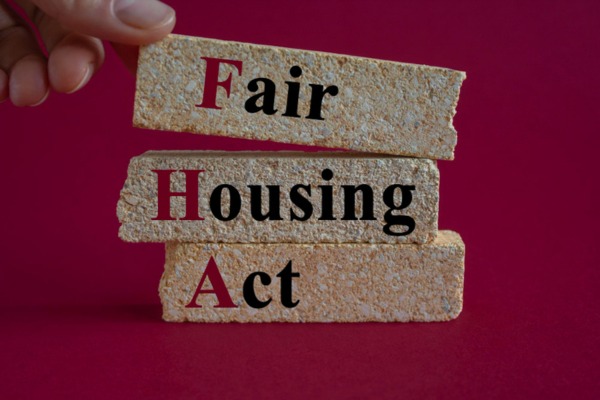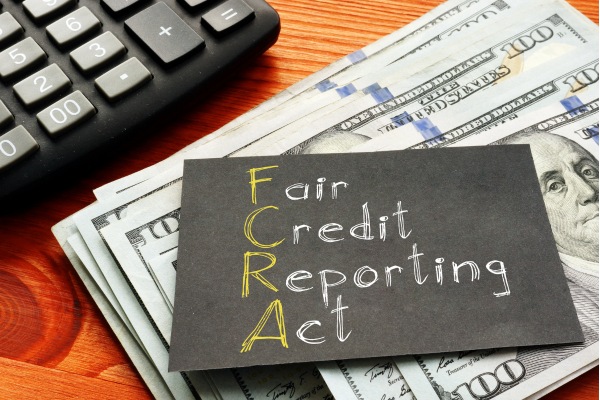Can I Get Denied Rental Application for Background Check?
Getting denied after submitting a rental application can feel frustrating, especially when a background check is involved. You may have felt confident, only to be left with questions and no clear answers.
Landlords often review credit history, criminal background, and past rentals before making a decision. It is a common part of the tenant screening process, but it can still come as a surprise when the answer is no.
If you are wondering whether something like a low credit score or a past eviction could be the reason, you are not alone. Many renters worry about what shows up and how it affects their chances.
So, what really matters to a landlord during screening? And how can you improve your odds next time? Keep reading to find out what makes or breaks a rental application.
Contents
- 1 Can I Get Denied Rental Application for Background Check?
- 2 Common Reasons Rental Applications Are Denied After a Background Check
- 3 What to Do if a Landlord Rejects Your Application?
- 4 Special Consideration for Military Tenants
- 5 Conclusion
- 6 FAQS
- 6.1 How long do evictions and criminal records stay on my report?
- 6.2 What are my rights under the Fair Credit Reporting Act if I’m denied?
- 6.3 What does unsatisfactory or insufficient mean for rental history?
- 6.4 What counts as illegal discrimination in rental application denials?
- 6.5 Can I still rent if I’ve been evicted before?
Can I Get Denied Rental Application for Background Check?
Yes, landlords can deny a rental application based on what shows up during a background check. This is a routine part of the tenant screening process and is used to evaluate whether a prospective tenant is likely to meet the terms of the rental agreement. That said, any decision to deny must follow federal, state, and local laws.
A typical background check looks at several key areas, including your credit report, criminal background, and rental history. While issues like a poor credit score, prior evictions, or a criminal record can influence a decision, a landlord cannot reject someone for reasons that violate fair housing laws. Discrimination based on race, religion, familial status, or national origin is prohibited under federal law.
If you believe your application was denied unfairly or due to incorrect or misleading information, you have the right to dispute errors and take action. Regulations like the Fair Credit Reporting Act and the Fair Housing Act are there to protect rental applicants from unlawful practices.
Fair Housing Act: Protected Classes and Illegal Discrimination

Not every denial is about credit scores or background records. Sometimes, the reason lies in something far more serious, illegal discrimination. That is where the Fair Housing Act steps in.
Under this federal law, landlords cannot treat rental applicants differently based on race, color, national origin, religion, sex, familial status, or disability. These are known as protected classes, and landlords are legally required to offer equal housing opportunities to everyone, regardless of personal background or identity.
Imagine applying for a rental unit and being turned away because you have young children or because you were born outside the country. Or being told the unit was already rented, only to find out it is still available when someone else inquires. These are examples of behavior that may violate fair housing protections.
Refusing to rent to someone because of their ethnicity or denying an application due to a physical disability also falls under illegal discrimination.
If something feels off or you suspect the rejection was not based on your rental qualifications, you have options. Complaints can be filed directly with the U.S. Department of Housing and Urban Development. In many cases, local and state agencies also have fair housing offices ready to investigate concerns and guide individuals through the process.
Fair Credit Reporting Act (FCRA): Tenant Rights and Landlord Obligations

What many rental applicants do not realize is that background checks are governed by strict federal rules. The Fair Credit Reporting Act ensures that when landlords use consumer reports for tenant screening, your rights are protected every step of the way.
Before running a background check, a landlord must get your written permission. This applies whether they are reviewing your credit report, criminal background, or employment history. Without your consent, the screening cannot legally move forward.
If the results of that report lead the landlord to deny your application, they are required to send you an adverse action notice. This notice explains that your application was rejected because of something in the report and tells you which reporting agency provided the information.
You also have the right to request a free copy of the report and dispute inaccurate information if you believe something is outdated or incorrect. The FCRA gives you a path to correct errors, helping you avoid unfair rejections in the future.
State and Local Laws: Variations and Additional Protections
Federal laws lay the foundation, but where you live can make a big difference in how rental applications are handled. Some cities and states go even further to protect tenants, often filling in the gaps that federal laws do not fully cover.
For example, many places have adopted what are known as “ban the box” laws. These rules limit when and how a landlord can ask about your criminal history. In some areas, landlords cannot consider arrests that did not lead to convictions, or they must wait until later in the process to ask about your record. This gives rental applicants a fair chance before being judged on their past.
State and local laws may also protect groups not mentioned under the federal Fair Housing Act. Some areas prohibit housing discrimination based on sexual orientation, gender identity, or the source of your income, such as government assistance or disability benefits. These additional protections can be especially important in communities that recognize a broader definition of fairness.
Certain states even have tighter limits on how credit history and past evictions can be used. For instance, a low credit score alone may not be enough to deny someone housing if other factors like steady income or positive rental references are present.
These rules vary depending on the location, so knowing your local laws can help you spot when something is not right. In places with stronger protections, tenants may be able to challenge decisions that would be considered legal elsewhere.
While the screening process may seem standard across the board, the reality is that your rights can shift depending on your zip code. Understanding the specific regulations in your area gives you a stronger position when applying for a rental unit.
Common Reasons Rental Applications Are Denied After a Background Check
Just because discrimination is illegal does not mean every denial is unfair. Landlords still have the right to choose tenants they believe are the best fit for their property, as long as their decisions follow the law.
1. Poor Credit History or Low Credit Score

Imagine handing over your rental application, only to have it rejected because of a number on a screen. That number, your credit score, often plays a huge role in a landlord’s decision. Property managers use it as a quick snapshot of how reliable you might be when it comes time to pay rent.
A low credit score, especially one under 600, can raise concerns. It might signal missed payments, outstanding debt, or maxed-out credit cards. For some landlords, these red flags are enough to worry about late rent or non-payment in the future. Even if your score is slightly higher, consistent patterns of late payments or defaults on your credit report can influence the outcome.
Not having a credit history at all can also work against you. While it does not mean you are financially irresponsible, it gives the landlord little to go on. Without that track record, they might feel hesitant about offering you a rental unit, especially if they have multiple applicants.
Keep in mind that score requirements vary. Some landlords may approve tenants with lower scores if other pieces of the puzzle, like rental references, steady income, or a co-signer, are checked out. But in competitive markets, a poor credit profile can easily become the deciding factor.
2. Insufficient Income or Unstable Employment
Even with a clean credit report, your application can still hit a wall if your income does not add up. For most landlords, financial stability matters just as much as your rental history.
A common guideline used in the tenant screening process is that your monthly income should be at least two and a half to three times the monthly rent. This ratio helps property managers determine whether you can reasonably afford the rental unit without stretching your budget too thin.
If your pay stubs do not reflect that income level, or if your employment history shows frequent changes or unexplained gaps, it could signal financial instability. Some landlords also consider your total debt load. If your credit report shows a heavy amount of outstanding debt, they may question whether you can keep up with rent payments on top of your other obligations.
Documentation matters. Even a well-written application can fall short without solid proof of steady income, like recent pay stubs, bank statements, or employer verification. For rental applicants in competitive areas, this lack of clarity could be the reason a landlord moves on to the next name on the list.
3. Negative Rental History
You might have a steady income and decent credit, but your past rentals can still catch up with you. Landlords often look closely at rental history to get a sense of how you behave as a tenant, not just on paper, but in real life.
One of the most serious red flags is a record of prior evictions. Whether it was for unpaid rent, lease violations, or other conflicts, an eviction on your tenant screening report can raise immediate concern. Some property managers may not consider applicants with past evictions at all, while others may want an explanation before making a decision.
Even without a formal eviction, a trail of issues like repeated late payments, disputes with other tenants, or lease violations can also work against you. These details may come up in rental references or when a landlord contacts your previous landlord.
Frequent moves might also create doubt. If your background shows a pattern of short-term rentals without valid reasons, it could make landlords hesitant to offer a long-term lease. They may worry that you are unlikely to stay or that there could be issues down the line.
4. Prior Evictions or Unpaid Rent
Sometimes, it is not just how you lived in a rental but how you left. Evictions, especially those related to unpaid rent, often carry more weight than many applicants realize. For landlords, they signal a breakdown in the lease agreement and a potential repeat of costly problems.
Recent evictions for missed payments or property damage are among the strongest reasons a landlord may deny a rental application. Even if the issue happened years ago, it can still appear on a tenant screening report and influence the outcome.
In some cases, property managers view unpaid rent as a sign that future payments may be unreliable, regardless of current income or employment.
However, laws vary. In several states, there are limits on how far back landlords can look, typically five to seven years. That means older eviction records may no longer be considered during the screening process, depending on local laws.
Even so, if unpaid rent remains on your record without resolution or context, landlords may see it as an unresolved risk. To move forward, it helps to address these issues head-on and, where possible, provide documentation or evidence that your current situation is more stable.
5. Criminal Record

You may have turned your life around, but what shows up in a criminal background check can still affect your chances of renting, depending on where you live and what shows up on the report.
Landlords often consider criminal convictions when evaluating rental applicants, especially if those convictions involve violence, property damage, or drug-related offenses. That said, not every criminal record leads to a denial. In many states and cities, the law draws a clear line between arrests and convictions. Arrests that did not lead to conviction are often off-limits and cannot be used as grounds for rejection.
In fact, several jurisdictions have adopted fair chance housing laws. These rules limit how and when landlords can factor in a person’s criminal history. Some require landlords to delay any criminal background check until later in the screening process. Others restrict consideration of older or nonviolent offenses that are no longer relevant to the applicant’s ability to be a reliable tenant.
For example, a conviction from over seven years ago for a minor offense may not be enough to deny your application in cities with stronger protections. Local laws may also require landlords to consider rehabilitation, the time passed since the offense, and the nature of the crime.
While criminal history can play a role in the tenant screening process, the law aims to balance public safety with fair access to housing. Knowing your rights and how your local regulations apply can help you respond if you believe your background was unfairly used against you.
6. Incomplete or Inconsistent Application Information
It might seem like a small oversight, like a missing phone number here, a skipped section there, but for landlords, these gaps can signal bigger concerns. When reviewing rental applications, even simple errors or missing details can cause hesitation.
Applications that include inconsistent employment history, incorrect dates of previous rentals, or mismatched income information often slow down the tenant screening process. In some cases, they may even lead to an automatic denial. Landlords may interpret unclear or contradictory details as signs of carelessness or even dishonesty.
Adding false information, whether it’s inflated income or made-up references, does more than raise eyebrows. It breaks trust, and in the rental business, trust is everything. Once that is compromised, most landlords will not take the risk, especially when there are other applicants with complete, verifiable records.
To avoid issues, make sure your application is filled out accurately and completely. It not only shows responsibility but also helps you stand out as someone who takes the process seriously.
What to Do if a Landlord Rejects Your Application?
Ask for the Reason for Denial
The message comes in that you didn’t get the place. It’s disappointing, especially if you felt confident about your chances. But before you walk away or reapply elsewhere, it’s worth taking one important step: ask why.
You have the right to know what led to the denial, especially if a background check or credit report played a role. Under the Fair Credit Reporting Act, landlords are required to provide what’s known as an adverse action notice. This document should outline the specific reason your application was rejected and identify the consumer reporting agency that supplied the tenant screening report.
This notice matters. It allows you to see exactly what the landlord saw, whether it was a low credit score, inaccurate information, or something in your rental history. It also gives you a chance to request a free copy of the report and, if needed, dispute errors that may have affected the decision.
Dispute Inaccuracies
Just because your application was denied does not mean the decision is final, especially if something in the report looks wrong. Mistakes happen more often than you might think, and they can unfairly damage your chances of renting a home.
If your rejection was based on inaccurate information in a tenant screening report, credit history, or criminal background check, you have the right to challenge it. The Fair Credit Reporting Act gives you the power to dispute errors directly with the reporting agency that provided the report.
Whether it is outdated information, an incorrect eviction record, or a criminal charge that never resulted in a conviction, you can request a formal investigation. Once your dispute is submitted, the agency is required to look into the claim and respond, typically within 30 days. If the information is found to be false or misleading, they must update the report accordingly.
Taking action protects your reputation as a renter and helps prevent future denials based on the same issue. You do not have to settle for a decision rooted in error; a process is in place to correct it.
Better Your Credit Score

A rejection can sting, but it can also be a turning point. If your credit history played a role in the denial, it may be time to take a closer look at your score and start strengthening it for future applications.
Improving your credit score does not happen overnight, but steady effort can lead to real results. Start by reviewing your credit report for errors. Incorrect or outdated information, such as paid-off debt still marked as unpaid, can drag your score down. Disputing those mistakes through the reporting agency is a smart first step.
Next, focus on reducing existing debt and making consistent, on-time payments. Even small steps, like paying more than the minimum balance or setting up reminders to avoid late payments, can gradually improve your credit profile.
Some landlords are willing to consider applicants with a lower score if they see progress or responsible habits. Each point gained shows you are moving in the right direction, and that could make all the difference when you apply for your next rental unit.
Special Consideration for Military Tenants
Serving in the military brings frequent moves, sudden orders, and unique rental challenges. That’s why federal law offers service members specific protections when it comes to housing.
Under the Servicemembers Civil Relief Act, landlords cannot evict active duty tenants for unpaid rent without first going through the courts. The law also allows military renters to end a lease early if they receive deployment or relocation orders, without facing penalties or extra fees.
In some places, additional support exists. A few landlords may waive application fees, allow flexible lease terms, or make exceptions during long training periods or unexpected transfers. These are not required by federal law but may be offered as a courtesy to those in uniform.
Importantly, no one can deny you housing just because you serve. If it seems your military status was used unfairly in the rental decision, there are steps you can take to report it. Understanding these protections ensures you are treated fairly while focusing on your service.
Conclusion
Applying for a rental comes with its share of stress, especially when a background check stands between you and your next home. While landlords have the right to screen applicants, their decisions must follow fair housing laws and consumer protections.
Whether the issue is a low credit score, past evictions, or something else in your tenant screening report, you have the right to know why you were denied, and the power to challenge any errors that played a part.
Knowing how the process works gives you an edge. It helps you spot red flags in advance, correct misinformation, and build a stronger application next time around. For military tenants, these protections are even more critical, and legal safeguards like the Servicemembers Civil Relief Act exist to make sure your service is never used against you.f
If you’re a law firm, company, or property manager needing to verify a renter’s military status, make it simple and secure. Use SCRACVS to confirm active duty status with confidence and stay compliant with federal protections.
FAQS
How long do evictions and criminal records stay on my report?
Evictions typically remain on your tenant screening report or credit history for seven years. Criminal records vary; convictions may appear longer depending on state laws, while arrests that did not lead to a conviction may not be included at all. Some cities with fair-chance housing laws limit how far back a landlord can look during apartment background checks. If you’re concerned about prior evictions or a criminal background check, check your local laws and dispute outdated information when necessary.
What are my rights under the Fair Credit Reporting Act if I’m denied?
If a landlord rejects your rental application based on a background check or credit report, the Fair Credit Reporting Act gives you the right to receive an adverse action notice. This notice must include the name of the consumer reporting agency used. You can request a free copy of the report and dispute inaccurate information. The reporting agency is required to investigate and correct any misleading information, usually within 30 days.
What does unsatisfactory or insufficient mean for rental history?
If your rental application is denied due to “unsatisfactory” or “insufficient” rental history, it could mean you had prior lease violations, late payments, or a gap in previous rentals. It might also refer to a lack of rental references or a history that does not help the landlord assess your reliability. Property managers often want to see that tenants pay rent on time, follow the lease agreement, and leave previous rental units in good condition.
What counts as illegal discrimination in rental application denials?
Illegal discrimination occurs when landlords reject rental applicants based on race, national origin, religion, sex, familial status, or disability. These are federally protected classes under the Fair Housing Act. In some areas, local laws add protections for sexual orientation, gender identity, or source of income. Refusing to rent because someone has children, is part of a specific ethnic group, or receives public assistance could violate fair housing laws and should be reported.
Can I still rent if I’ve been evicted before?
Yes, you can still rent even if you have a prior eviction. Many landlords consider the context, such as how long ago the eviction happened or whether it was due to unpaid rent or other lease violations. Some may request a cosigner or larger security deposit. If the eviction shows up on your tenant screening report, you can explain the situation, provide rental references, or show proof of steady income to improve your chances.






